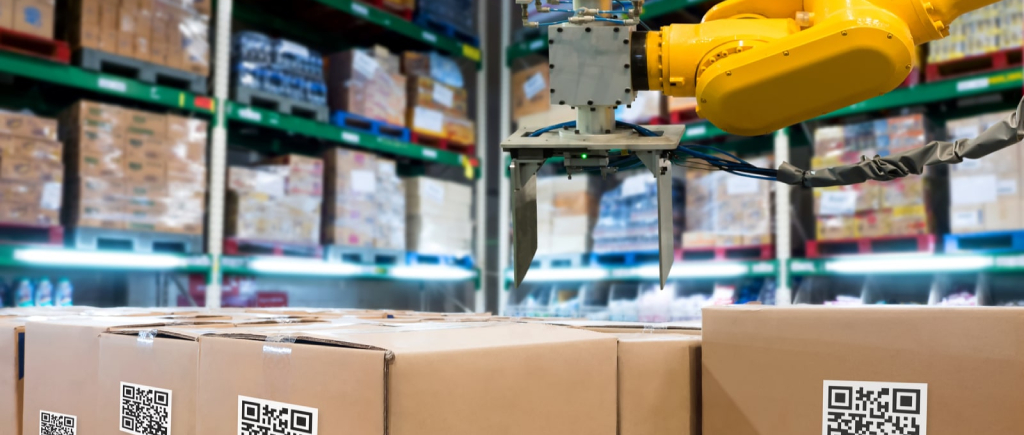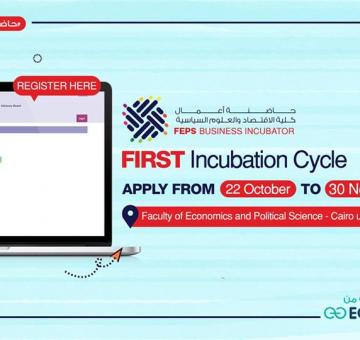TWO EGYPTIAN STARTUPS HELP IN FILLING SUPPLY CHAIN GAPS

How did two Egyptian startups help in solving the Fragmentation of supply chains and increasing demand? Last April, we mentioned that maintaining social distancing would be an important factor for companies working in infrastructure to resilient during the pandemic.
Social distancing created a golden opportunity for growth in startups focusing on supply chains. Large companies, including fast-moving consumer goods, have experienced considerable difficulties with a sharp decline in demand from consumers who have stayed home and relied on applications and e-commerce for their different needs.
Today, we shed light on the experience of MaxAB application for connecting retailers with suppliers, and how it has managed to succeed in a large industry by filling gaps in supply chains.
Before the pandemic, major traders relied on a flawed multi-part supply chain: Before 2020, E-commerce was an online market that relied on single orders, for a single product, and was often delivered by the supplier itself. Egypt and MENA region did not have the infrastructure to deal with large combined orders including goods and household goods, according to CEO and co-founder of social commerce platform Brimore Mohamed Abdelaziz’s interview with Enterprise.
However, the vegetable and fruit delivery services were able to make a breakthrough as consumers went to order different products in large quantities, requiring storage space and home delivery fleets.
How do supply chains usually work? AbdulAziz explains that the product passes between up to six different actors or people until it reaches from the factory to the consumer. It moves from the factory to the distributor, to a local distributor, then the wholesaler, then to a smaller wholesaler, and finally to the retailer, where it becomes available to the consumer.
“Moving FMCG products through transportation cars from factories to more than 400,000 shops in Egypt usually results in wasting time and products.” Belal ElMegharbel, Cofounder and CEO of MaxAB.
This situation results in considerable fragmentation of supply chains and difficulties in gathering information. ElMegharbel explains how this extreme fragmentation affects collecting important information, such as price changes during different stages of the supply process, its flexibility, the market shares of the company and market trends. Then the pandemic came in to make things very difficult and disrupt all those chains that are moving on the ground.
What are the retail solutions that MaxAB offer? The application works through gathering information and creating less fragmented supply chains. The platform, which can be used by retailers to obtain large quantities of various goods, has a complete supply process that includes stores and delivery service. Through the information it collects, MaxAB application becomes able to identify price changes and shortages of various goods in different locations, predict the volume of demand and the needs of retailers in each region, fill the data gap for manufacturers, and allow them to better anticipate production requirements.
As all successful e-commerce platforms, MaxAB has an entire system for implementing its own orders, including warehouses and distribution fleets. It's the same model that Amazon uses to ensure that its goods are delivered on the same day. The company has increased its storage space from 10 to 45 thousand sqm and has now 11 stores in Greater Cairo, Tanta, Mahalla and Mansoura.
The collected data helps MaxAB to improve the implementation service by pre-organizing its warehouses. For retailers, the application provides a way to order the exact products and quantities that their stores require, this step helps the application to determine who needs what and when. Accordingly, the company becomes able to fill its warehouses ahead of time and efficiently deliver the exact amount and variety of products needed directly to the retailer.
Thanks to the pandemic, MaxAB was able to maximize revenue and expand the user base. During 2020, its earnings doubled by about 4.5 times, and the number of active retailers increased from 8,000 to 22,000. Today, 92% of the orders come from the mobile app, comparing to 40% came from the website before the pandemic. In addition to the high rate of interaction as more than 40% of users access the app every day.
What happens to smaller retailers when cash flow cannot keep up with demand? In order to continue meeting the demands, retailers use large quantities of storage to meet the increasing demands. This puts pressure on suppliers to provide more supply, and at the same time puts retailers under financial pressure as they need to pay advances for the products they buy.
Thus, MaxAB offered its microfinance service for retailers to buy on credit in partnership with Cassbana, the microfinance company, according to ElMegharbel. Cassbana focuses on individuals and companies that do not use traditional banking services. It uses artificial intelligence to create a credit rating system based on user behavior and determines their access to credit. The ultimate goal is to create a financial identity for those outside the banking system, or in short to be financially inclusive.
Cassbana aims to reach 1 million users by the end of 2021 and has recently raised more than $1 million in a seed round, led by Egyptian fintech-focused VC Disruptech.
MaxAB has raised $6.2 million in a seed round in 2019, in addition to funding in an undisclosed round.






































































EgyptInnovate site is not responsible for the content of the comments